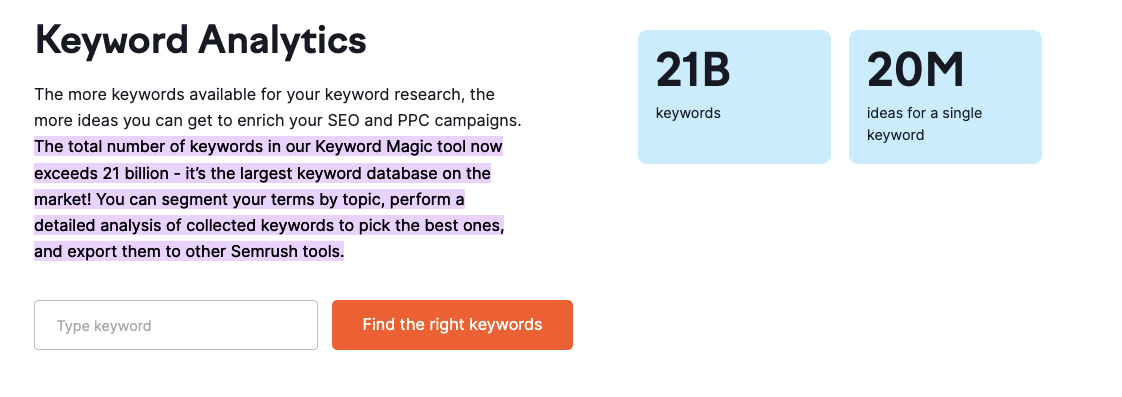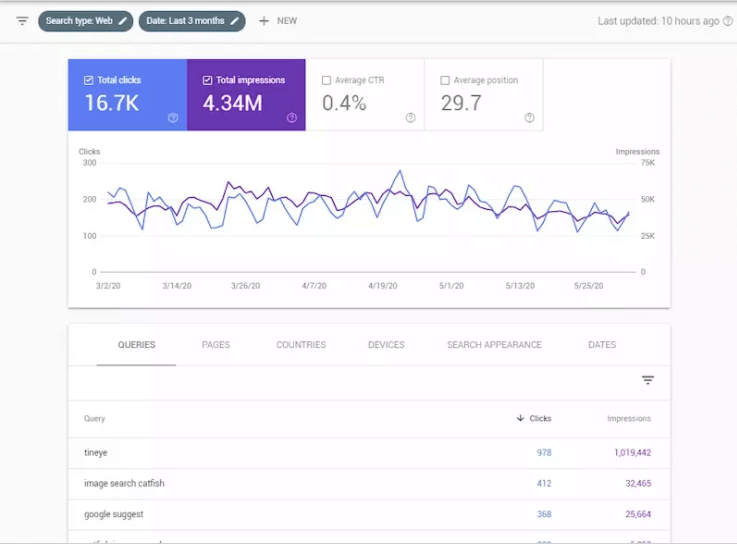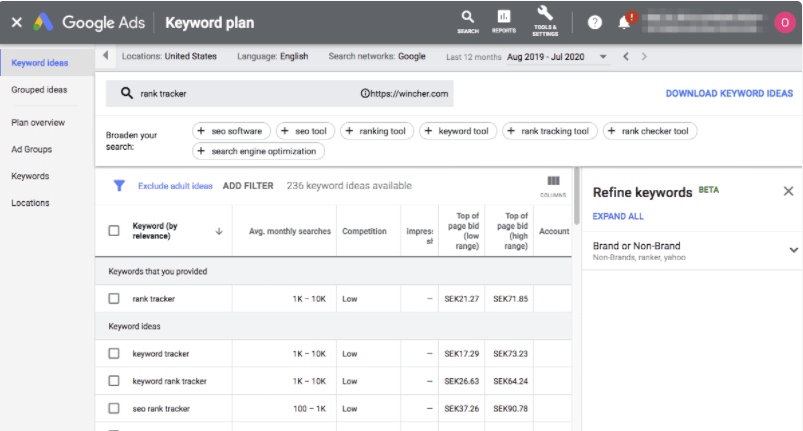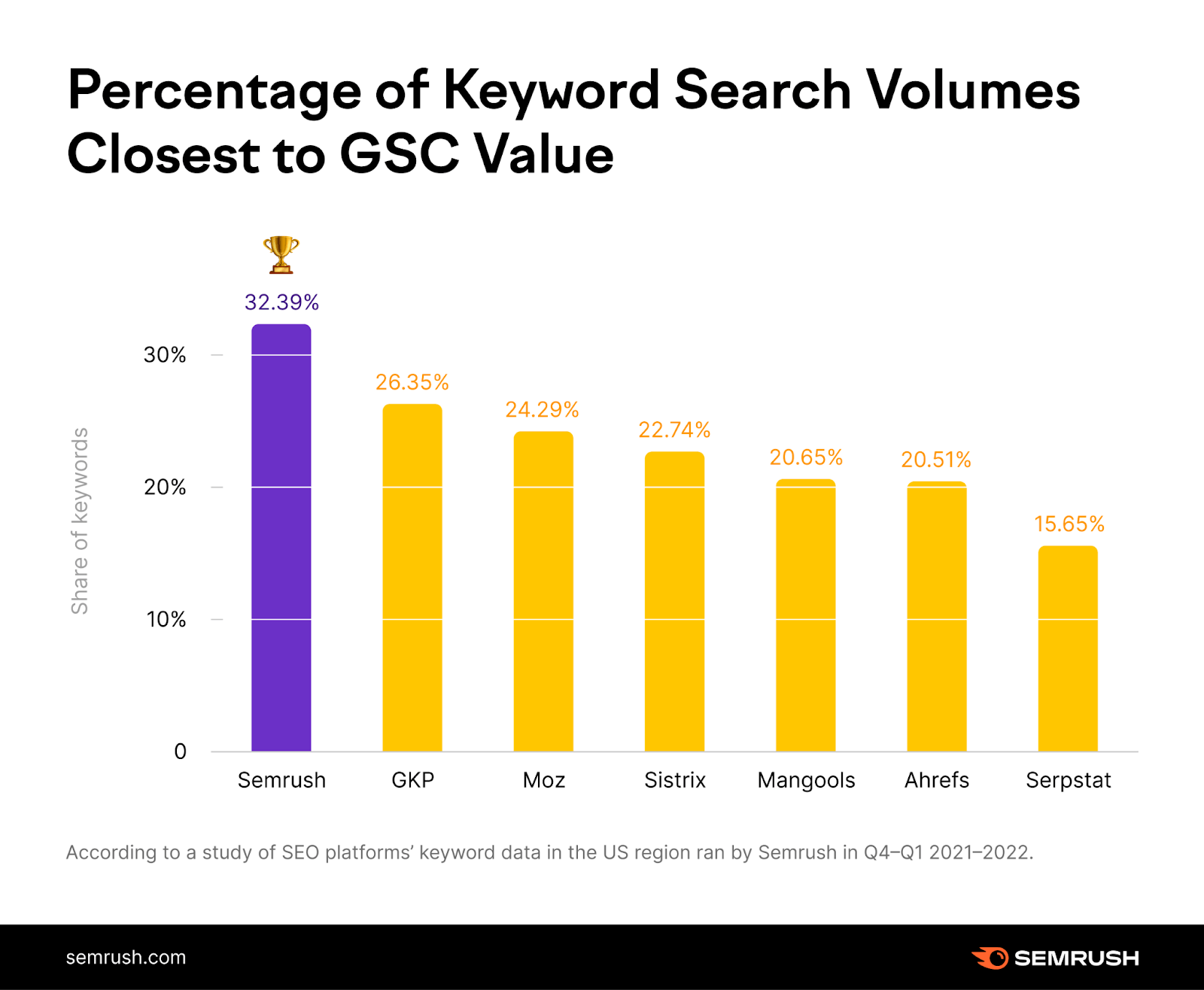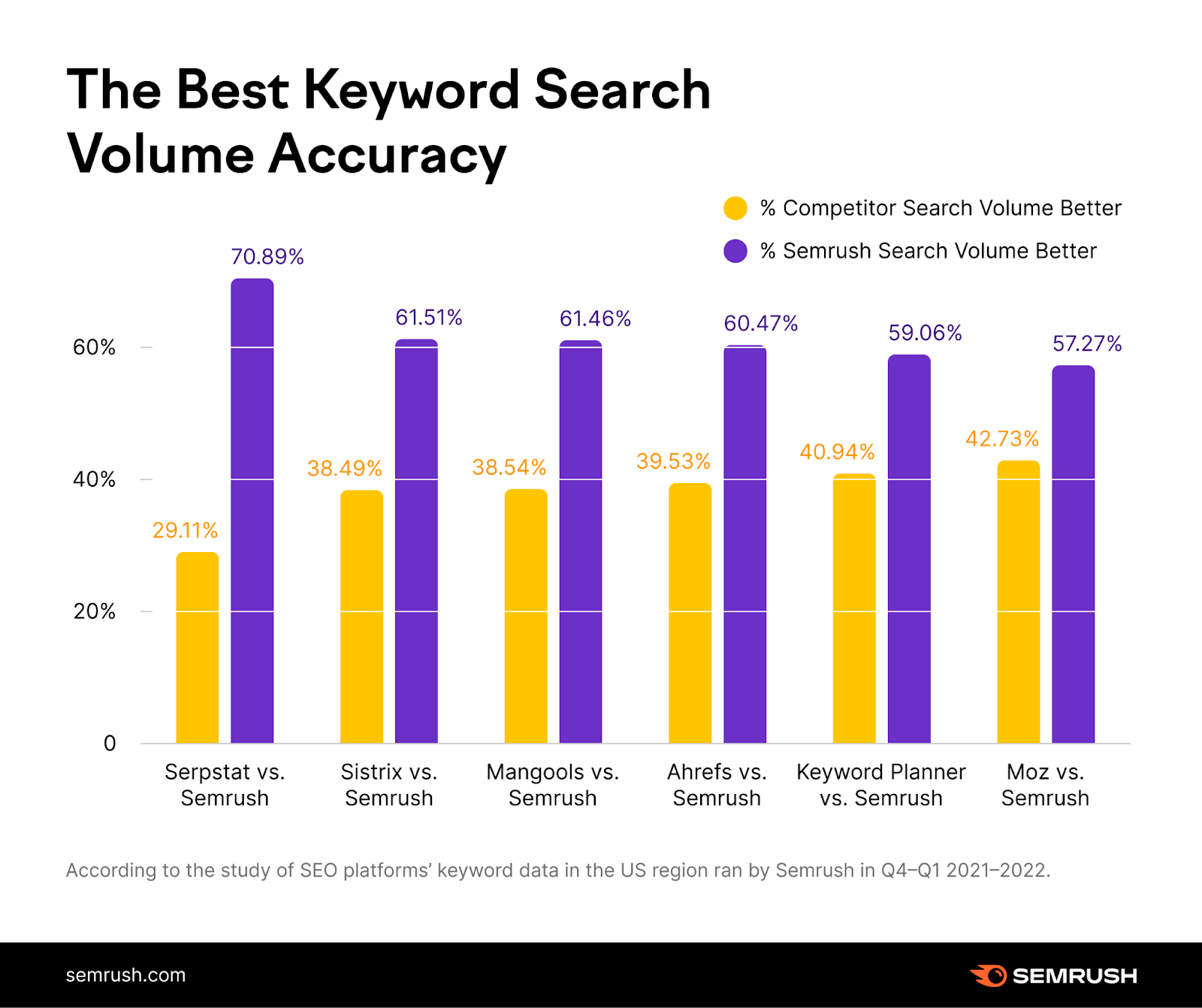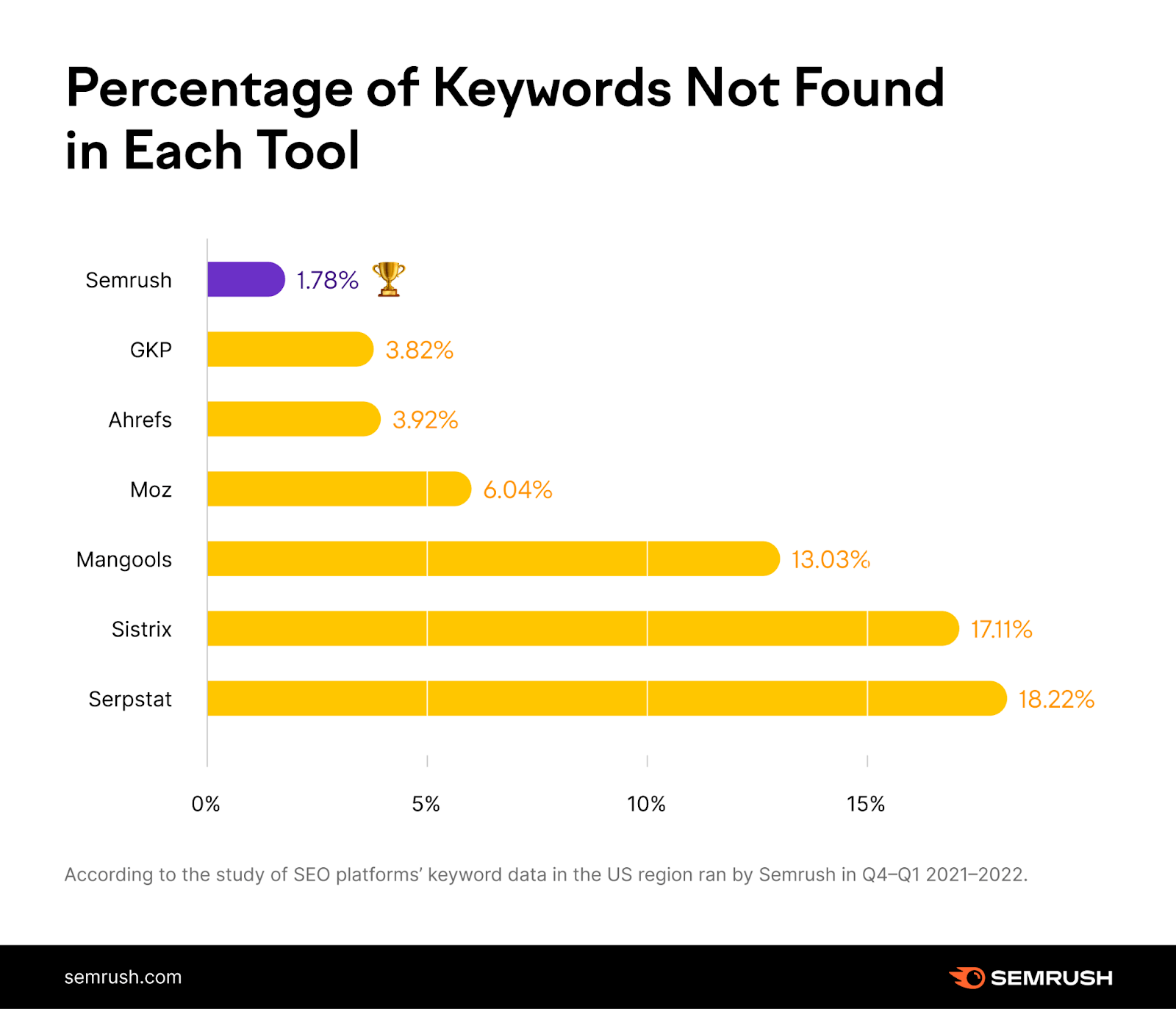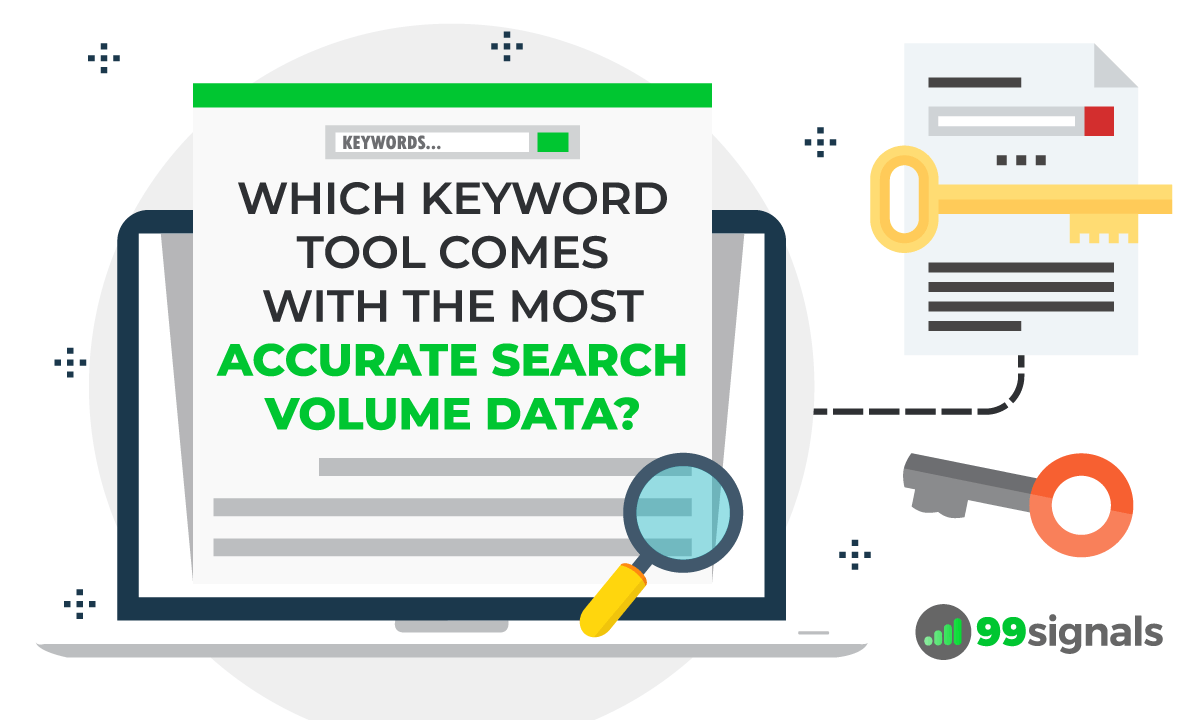 Even if you're quite new to SEO, you know that keyword research is one of its cornerstones.
Even if you're quite new to SEO, you know that keyword research is one of its cornerstones.
That means that any successful SEO effort is inherently tied with the quality of keyword data you receive. In turn, this implies that you need a reliable keyword tool that will equip you with the right data.
This post will walk you through the data quality of some of the most popular keyword tools for SEOs and help you unwrap the most valuable solution — all to build your SEO strategy on trustworthy keyword insights.
Table of Contents
Measuring Keyword Tool Quality by Search Volume Data
There are a few aspects that define the quality of a keyword research tool.
There's keyword database size.
In this case, the winner is pretty easy to define as you just look at the numbers reported by each tool. And in this regard,
But looking simply at database size is not enough. Because the database might be filled with keywords that are no longer useful (so-called obsolete keywords) or a lot of repeat keywords (essentially, variations of the same keyword, including typos and plurals).
That's why you should be paying more attention to real quality indicators:
- Search volume data accuracy
- Keyword data coverage
And these are the two aspects of quality we'll be examining in this post when assessing which keyword tool provides the best data.
Exploring the Keyword Tools' Landscape
First, let's define the types of keyword tools we'll be covering here. The keyword tool landscape consists of two large groups: Google's native tools and third-party tools.
Let's take a closer look at each of these groups.
Google's Native Keyword Research Tools
Can You Use Keyword Data from Google Search Console?
Let's start with Google Search Console — a tool any site owner and marketer turns to almost on a daily basis.
This is where you go to unwrap keywords your site is ranking for. And that's the biggest downside — you only get to see those keywords you already have in your portfolio.
But the very nature of keyword research implies that you should go into uncharted territories and explore hundreds if not thousands of keywords before deciding which ones are worth optimizing.
Then, there's another limitation. Google Search Console only returns impressions data, and not keyword search volume per se.
Keyword search volume shows how many users enter a given search query into the search engines in a given timeframe. This reflects the popularity of each keyword and the maximum traffic expectations (given you are ranking first for that search query).
Impressions, however, only indicate how many users saw your particular link when entering the analyzed keyword. So it's not about general keyword research, it's about the analysis of your own keyword strategy performance, which is important but not precisely relevant for the broader process of keyword research.
Related: 10 SEO Metrics That You Should Consider Tracking
Is Google Keyword Planner a Better Fit for Keyword Research?
There's another Google-provided tool that seemingly has the data you are looking for — search volume stats.
But it's once again not a perfect solution. Keyword Planner is essentially free, but when you run a campaign, you get access to more data.
So when it comes to search volume data, its free version only features search volume ranges. Say, if you were looking for search volume stats for the "rank tracker" keyword, you'd see that it attracts between 1,000-10,000 monthly searches. And that's too big of a range to work with.
The paid version — that's when you run an ad campaign that targets a certain keyword — you'll get to see the exact search volume stats for that search query. But you cannot run an ad for every keyword thinkable and unthinkable. That's just too expensive and inefficient.
That's why Google-native tools cannot really be used for large-scale and effective keyword research.
Third-party Keyword Research Tools
Once we've taken Google-native tools out of the equation, we're left with third-party keyword tools that have all the intel you need for proper keyword evaluation.
While the keyword tool landscape is seemingly endless, there are actually only a handful of strong competitors that offer convenience and data range that you can leverage to run keyword research.
And these are Semrush, Moz, Ahrefs, Serpstat, Mangools, and Sistrix.
Only proper research can really tell how each tool stands in regard to the two quality indicators we mentioned above — search volume data accuracy and keyword data coverage.
Luckily, there is one reliable study that compared all the solutions.
Keyword Tools and Data Quality: Which Keyword Tool Has the Most Accurate Keyword Data
You cannot simply compare each tool up against one another.
The study took Google Search Console's impressions data as a benchmark. Because in some cases (this methodology explainer elaborates on this) impressions can equal search volume, and that's the kind of data that went into the analysis.
With these reference numbers on hand, the study used these stats to assess the quality of keyword data across the most popular third-party tools.
Curiously, they also included Google Keyword Planner's free version into the analysis to see if you can still rely on ranges more than on estimates coming from non-Google-native tools.
So without any further ado, let's look at the cold numbers.
Which Tool Has the Highest Search Volume Accuracy?
With Google Search Console's impressions as a benchmark, any tool that returns a higher percentage of a match with it is considered to be a winner when it comes to accuracy.
You can see that it's Semrush that has an uncontested lead. It's curious enough to note that Google Keyword Planner's own free version is less reliable — however, if we take into account the width of the search volume ranges, it gets less surprising.
While Moz is also doing seemingly not a bad job, the difference in accuracy with
If we roll back to Moz, the apparent closest competitor to
Which Tool Covers More Keywords?
As mentioned, keyword coverage is another important factor to consider.
While you can think of keyword data coverage in terms of database size, this is not the best way to look at it. That's why the study we're referring to here unwrapped how many keywords have no data to return across each solution.
Of course, in this case, they excluded Google Keyword Planner from the analysis and benchmark, because they just had to look at a set number of keywords and how many of them came with some data to return.
Keywords (%) that came with no data in each tool
In this case, the smaller the percentage, the better, because it means that the tool couldn't find data for a lower number of keywords.
Once again,
Give Your SEO Strategy a Boost With the Most Accurate Keyword Tool on the Market
With
But you may wonder now — what about the pricing?
Most of the tools that are featured here have comparable pricing. And when it comes to keyword research, it is all about quality. Because when you're spending money on tools that have low-quality data, you might as well be throwing them down the drain.
To learn more about
If you found this article, please share it on Twitter using the link below:
Related Articles

